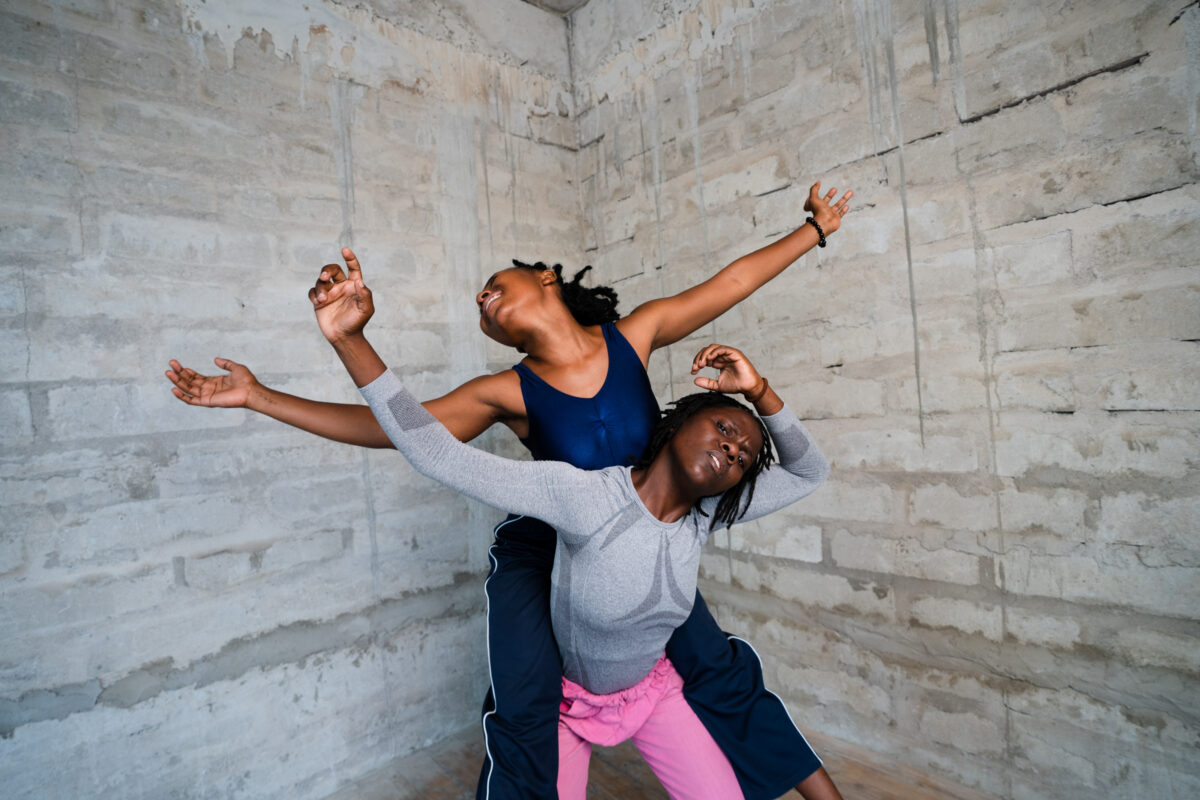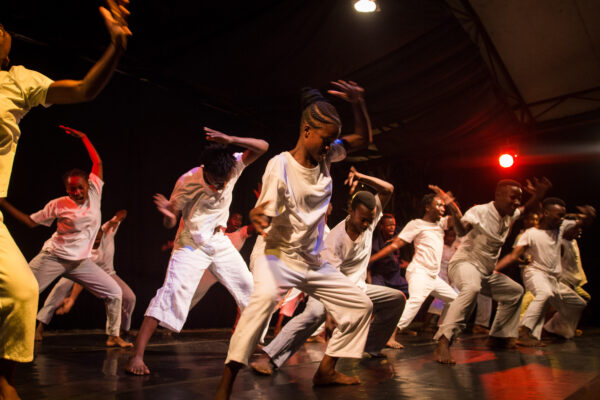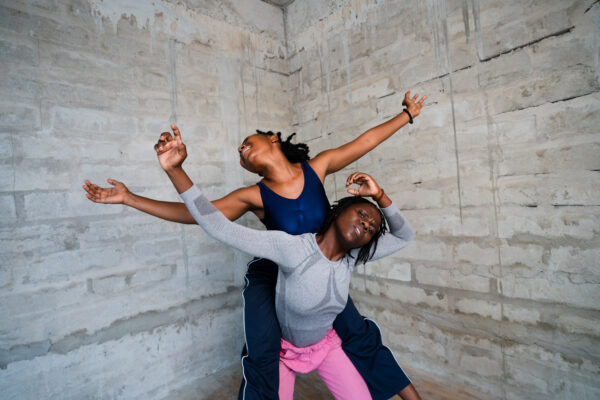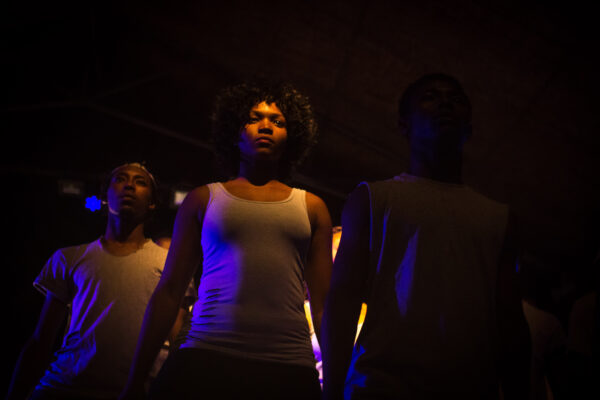
Tanzania’s Muda Africa Dance School
Brenda Jerome
“Muda Africa takes its inspiration from Tanzania’s 120 tribes, each with different cultures and traditions from which over eight traditional dance types form the contemporary and traditional dance programs offered at the school. “[We’re] innovating on our traditional background.”
Located in the heart of Dar es Salaam, Tanzania, Muda Africa is a non-profit organisation offering contemporary African dance programs to aspiring young dancers to equip them with the skills, passion and a means to forge a meaningful and sustainable career in the dance industry. Importantly, the dance school has been on a mission to address the underrepresentation of Tanzanian women in dance.
Strategies include:
- Building community support
Muda Africa showcases the hard work of their students on a regular basis to help change the local community’s negative perceptions and preconceived notions of dance that are often depicted in media. The families of the dance students are invited to attend annual festivals to witness the positive reception that students receive from the public for their performances and recognise that it is a respectable career path. - Stronger female representation
To address the underrepresentation of female dancers in Tanzania, the dance school employs professional female choreographers and alumni from similar backgrounds to work with and mentor the students. - Practising mindfulness
As most of the trainees come from difficult backgrounds, removing negativity is a key element for a student’s well-being. Muda Africa encourages their students to practise mindfulness to nurture their minds and bodies to make them more receptive to their lessons. - Focusing on personal development The dance school supports their students by teaching them life skills (such as improving women’s health and sex education) and helping them to develop their professional acumen (such as computer literacy and business skills).
Home to many young dancers since 2013, the Muda Africa dance school serves as a core connecting point of creativity and expression by teaching aspiring dance professionals through contemporary and traditional dance art forms. Its philosophy is shaped by its Executive Director Rachel Kessi and Artistic Director Ian Ephraem whose joint passion for creative inclusion in the arts industry has led to personal/economic progress and positive societal change for the youth of Tanzania.
Muda Africa takes its inspiration from Tanzania’s 120 tribes, each with different cultures and traditions from which over eight traditional dance types form the contemporary and traditional dance programs offered at the school. “[We’re] innovating on our traditional background,” says Rachel Kessi.

Performance choreographed by Robert Ngoroma and Nshoma Nkwabi during the annual Time 2 Dance festival Photo credit: Muda Africa
Building community support
The influence of media has been one of the leading barriers for women in dance in Tanzania. The negative depictions of female dancers in television and social media have created negative perceptions and pre-conceived notions in Tanzanian communities, making it extremely difficult for women wishing to consider dancing as a career path to forge ahead. Even to this day, the Tanzanian community has a strong influence on what a woman can and cannot do. Families fear what neighbours or community leaders might say if their daughter or sister chooses to take dance seriously. These barriers have proven to hinder many women to fully participate and complete the three-year program offered at the school. To break these negative stereotypes and present a new reality, Muda Africa invites families of current and aspiring students to join the classes on a quarterly basis to showcase their hard work, professionalism and ethic that it takes to complete the program. The families of dance students are also invited to attend the yearly festivals, where the students perform on the big stage and they can then see for themselves the positive reactions from the public to the performances and recognise that it is a respectable career path. Additionally, to inspire dance as a career at a young age and to dispel the negative connotations in dance, Muda Africa volunteers on a weekly basis at girls’ secondary schools to teach extracurricular dance lessons. The student’s energy and active participation in these lessons have encouraged many teachers to become more supportive of dance and this positivity has helped to inspire many young girls to consider a possible career path in the dance industry. There have been many efforts in the country to promote dance; however, much work is yet to be done. “More positive images of women in dance in our media channels is still needed for dance to be taken as a serious profession,” says Rachel Kessi.
Stronger female representation
The underrepresentation of women in dance in Tanzania has been a major and ongoing issue that Muda Africa has been trying to address via its Women in Dance program, aimed to provide additional mentorship courses and occasionally, fitness classes only for women.
To encourage higher female participation in dance, Muda Africa employs female choreographers and their alumni to teach the lessons in the program and mentor the students. Some of the female staff are from similar backgrounds as the students and are able to relate to the challenges that young women face in their communities and share how they overcame them. At times, Muda Africa invites international female choreographers to lead dance workshops at the school and the hard work and success of these professionals is something that inspires both male and female students to aim higher to achieve their aspirations and goals.
Female teachers now make up 40% of the staff working at Muda Africa and at least a third of the productions presented at the annual festival are choreographed by female choreographers.
Some of the female graduates success includes; setting up a successful women’s only dance group called Girls Power. One graduate was selected as a choreographer to participate in the Bikutsi 3000 project – a performing arts production with other African nations that will culminate in a performance in Paris. One other graduate has the most active Kizumba training classes in Dar es Salaam and another female dancer was part of a dance production that toured to Germany.

The underrepresentation of women in dance in Tanzania still exists . Photo credit: Ari Snow.
Practising mindfulness
For the body to be in its best shape, the mind needs to be in sync. As many of the students come from difficult backgrounds, it is important to help them reduce the negativity in their lives and improve their well-being by nurturing their mind, body and spirit through the practice of mindfulness.
At Muda Africa, the students begin each day from Monday to Friday with one hour of yoga followed by meditation “bringing concentration as a focal point for each individual,” says Ian Mwaisunga. The young women come from different areas, often using public transport to get to the school. With all the hustle and bustle of getting to class on time, it is important to begin the day of learning by practising mindfulness, separating negativity and inviting positivity to the body. At the end of the week on Fridays, every student gets to sit with the management team to chat about their challenges and exciting moments of the week. This open communication between the staff and students ensures that everyone’s voice is heard and all the students feel supported and understood.
Focusing on personal development
To become a professional dancer, discipline is key. Students are assessed under three criteria: attendance which makes up 80% of their grading (this makes them accountable for attending all the classes and staying away from negative influences), attitude and lastly, dance techniques.
Aside from providing lessons in dance, Muda Africa provides personal development opportunities for the student to learn important life skills such as improving their sex education and women’s health, particularly menstrual health management for the female dancers. Other life skills taught to help students develop their professional acumen include events management, business and marketing skills and computer and English language literacy. Students also learn about other cultural forms of dance such as ballet, rumba to broaden their scope and knowledge in dance.

A once performance during Muda Africa’s annual Time 2 Dance festival. Photo credit: Muda Africa
Brenda Jerome
| Brenda Jerome is a creative storyteller from Tanzania, with an incredible passion to use media and technology to contribute to building a better Africa. Her work involves writing, designing and creating innovative content that speaks and resonates across multiple media channels. As a youth changemaker who has worked alongside various development organisations, she advocates to solve global challenges around poverty, gender equality and good health. |
What is the Imagine Around the World Project?
A partnership with the British Council Australia, the Imagine Around The World Project aims to document case studies from numerous countries outside of US, UK, Canada, Australia and New Zealand to share best practice and leadership in cultural diversity, cultural equity and inclusion in the arts, screen and creative sectors. This project is managed by Diversity Arts Australia and supported by Creative Equity Toolkit partner, British Council Australia. To find out more click below – or read the other case studies as they go live here.

